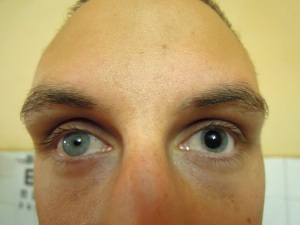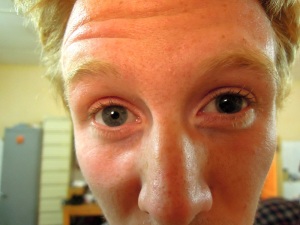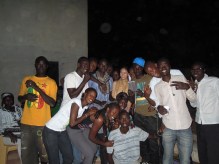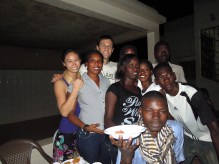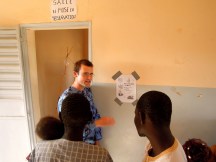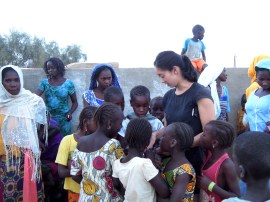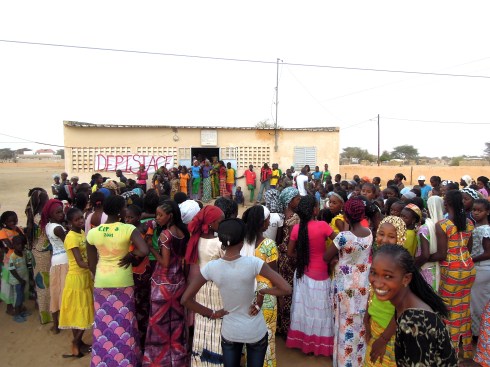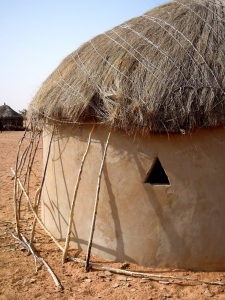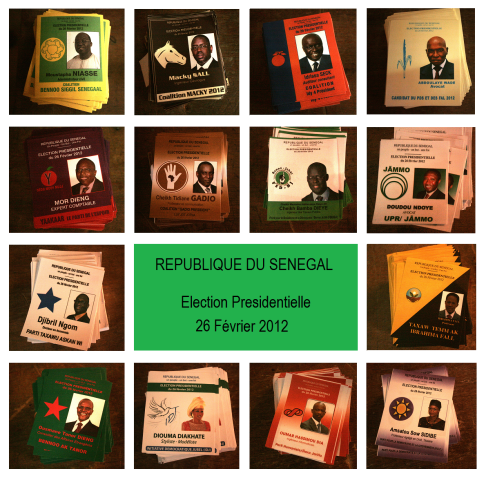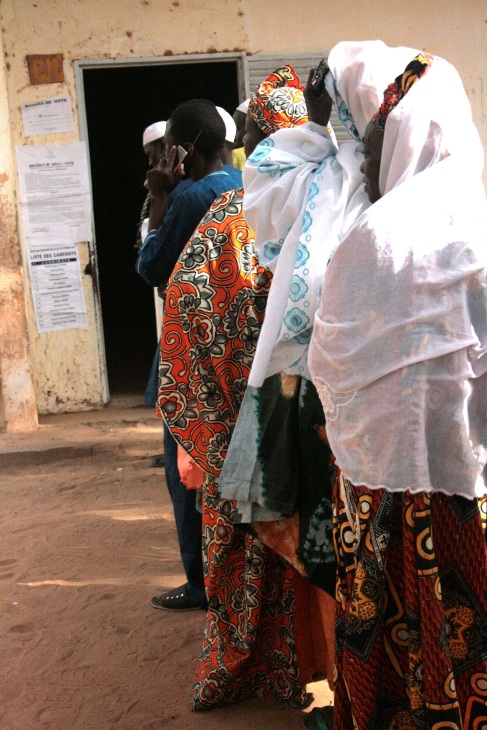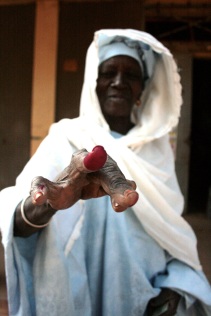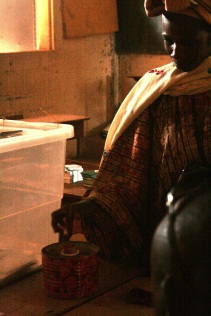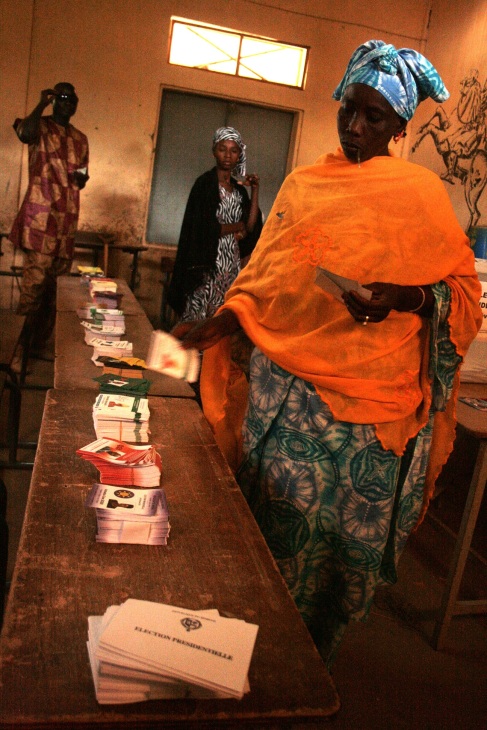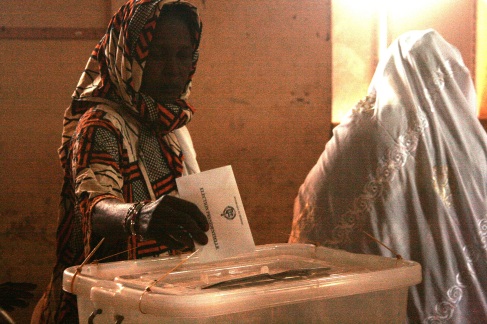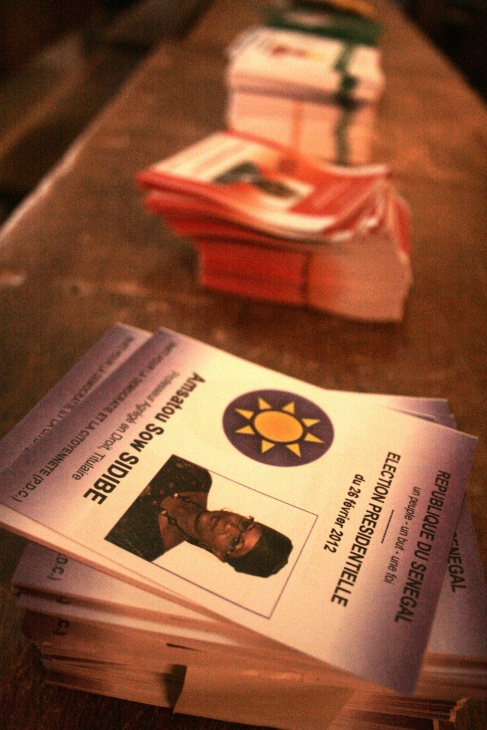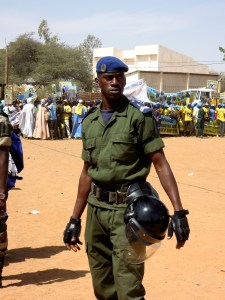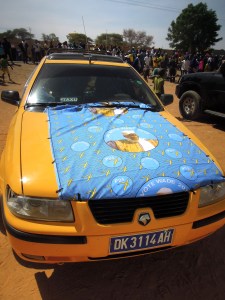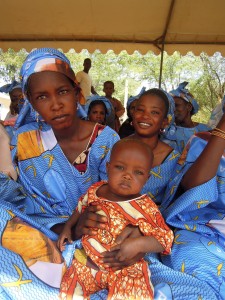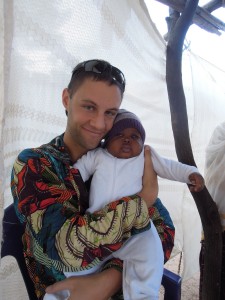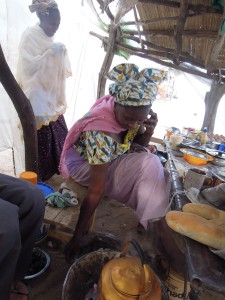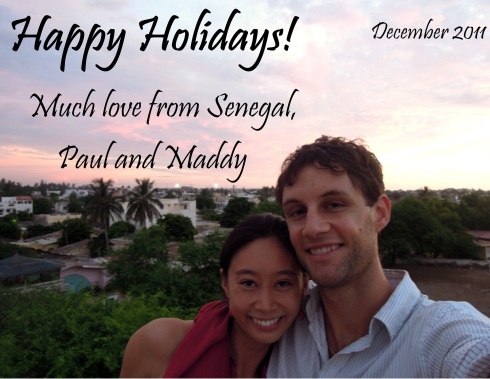
Don examining a patient's eyes
For a week, Paul and I got the chance to help with a great project in Senegal. The organization called Right to Sight and Health and two of its ophthalmologists Dr. Judith Simon and Dr. Donald MacDonald spent two weeks doing cataract surgeries in Bakel, a city located along the Senegal River on the far east edge of Senegal. Paul and I helped with the second week, mainly serving as translators while also aiding the doctors with organization, consultations, operations, and other technical procedures.


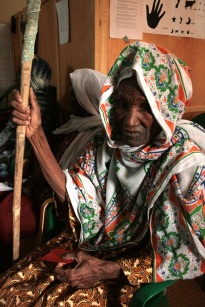
Each day, patients waited for a ticket to see the doctor. After buying a ticket, patients were given a preliminary eye test by Evan. Patients were asked to identify objects on an eye chart: moon, star, cow, flag, hand, or foot. Patients that were blind in at least one eye were seen by the doctor. From there, patients who were good candidates for cataract surgery were scheduled for an operation sometime later in the day or week. In many cases, we had to tell patients that they would never see again in an eye due to severe glaucoma, botched surgeries, or other complications. Near the end of the week, we had so many surgeries scheduled that we turned away all patients that had at least one good eye and concentrated on Priority One patients: patients who had two bad eyes.



Before surgery, my job was to do scans of the eye that determined the power of lens needed for the lens implant. It required poking people in the eye repeatedly with a pen-like laser pointer after applying a numbing substance. After measurements and a set of dilating drops, the patient went to Wilma and Nicki who dilated their eyes a few more times, took blood pressures, and aided the doctors in injecting anesthesia that blocked nerves from the eye to the brain. When ready, the patients were taken in for surgery. The surgery itself did not take long, and involved making a couple small incisions. The cataract was removed and an implant lens was put in to replace the bad lens. A day or two after surgery, the patients came back for a post-operation consultation to see if they were seeing any better. It was amazing to see patients come in who had restored eye sight. One little old man even raised Don’s hand in excitement proclaiming: “Vivre Amerique!”

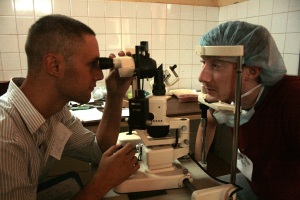
The week was exhausting as we were sometimes working from 8 am until 8 pm with a small lunch break. I was so impressed by the focus and stamina of the doctors. People came from all over Senegal to get cataract surgery. We had, of course, many insistent patients who secretly weaseled their way into the examination room even when they had no ticket yet to see the doctor. And then there were the Coumbas. We had three women (all named Coumba–Coumba Sow, Coumba Thiam, and Coumba Ba) who had their surgeries bumped from day to day to day because of over-booked surgeries (and also because all three had only one eye blind). Coumba Sow was quite a character, talking about herself exclusively in the third person and constantly screaming her own name whenever any PCV was near her: “Coumba Moussa Sow is here! Did you hear?” After her surgery, she ran outside dancing and screaming: “Coumba Sow hulaata. Baaba maa, o hulat, kono Coumba Sow hulaata!” (Translates to “Coumba Sow is not scared, your dad he is scared, but Coumba Sow is not scared!”) Thank goodness we got to all their surgeries the last day of the clinic, as turning them away after each day of waiting was dreadful.


Aside from work, we got to see the beautiful city of Bakel, a city that reminded me much of Podor with its French fort and river bank gardens. In Bakel a large percentage of people speak Soninke–a difficulty when translating during the eye clinic (I ended up learning some eye-specific vocab for the week).
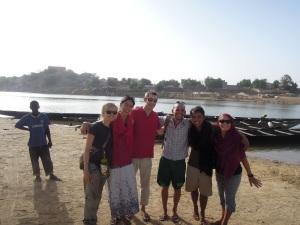

The week was filled with both heartbreak and joy: Telling people they would never see again but also watching people, who could not get around without help prior to the surgery, walking themselves into the consultation room. This has easily been one of the highlights of my Peace Corps service.

Most of the Bakel Team
This is what happens when PCVs have access to dilating drops:
